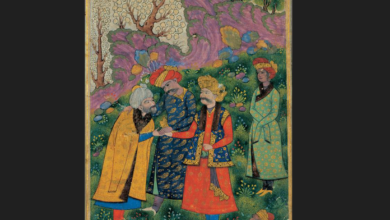Plagiarism a challenge in academics
It should be avoided to ensure academic integrity, success in professional life and intellectual growth

 A researcher working with one of the think tanks in India was left speechless when she found that one of her articles, published in a reputed American journal, had been plagiarised. Another researcher plagiarised a substantial part of this article and published it as their own. There was no citation to the original article. When the think tank wrote to the editor of the journal, they promptly removed the article and apologised to the organisation.
A researcher working with one of the think tanks in India was left speechless when she found that one of her articles, published in a reputed American journal, had been plagiarised. Another researcher plagiarised a substantial part of this article and published it as their own. There was no citation to the original article. When the think tank wrote to the editor of the journal, they promptly removed the article and apologised to the organisation.
Plagiarism is using someone else’s work in an academic output (article, idea) without giving credit to the original writer. In today’s world, with access to the Internet and AI technology, it is easy for anyone to borrow ideas and present them as their own.
Types of plagiarism
- Direct plagiarism: Copying another person’s work directly without any citations
- Paraphrasing without giving credit: Changing words but keeping the original idea without citing the source
- Self-plagiarism: Citing own work previously done without permission
- Accidental plagiarism: Not citing sources correctly due to carelessness
How does it affect students?
Students can face ill effects and consequences in their academic, professional and ethical concerns. What some students often do not realise is that plagiarism not only harms their academic life, but it also leads to copyright violations that call for legal action. They also lose credibility and the power to think critically.
How does plagiarism affect research scholars?
For research scholars, plagiarism is a serious offence in academic research and can lead to long-term concerns on career, reliability and trustworthiness. Chances are their research papers will be rejected, and in some cases, academic institutions may cancel the degree. Most importantly, a student could lose funding support or grants that may have been awarded. It may also lead to legal issues if the case is complex.
A student could be fined or penalised, and the said publication could be removed. The ethical and professional attitude of a student can also be questioned, leading to losing a job or reputation.
In short, plagiarism not only affects grades but also personal and professional growth.
How does plagiarism affect research organisations and academic institutes?
Plagiarism damages credibility, reputation and legal standing, which leads to serious consequences. Legally, there can be huge financial losses, which can hamper research funds and grants. This will also impact collaborative projects (both national and international) that can be cancelled. It also leads to organisations and companies not employing students from such institutes and academic organisations.
What can be done to avoid this?
While there are several ways to avoid plagiarism, the following may be adapted by academic institutions and organisations:
For students
- Give credit to sources and authors if citing
- Use plagiarism detection tools
- Follow standards and guidelines to use proper citations (APA, Chicago Manual of Style, MLA to name a few)
- Practice developing original ideas
For research scholars
- Use plagiarism tools
- Seek guidance from mentors
- Use open-source and ethical research methods to ensure transparency
For organisations
- Introduce a strict internal editorial process that can arrest plagiarism right at the beginning
- Invest in and use appropriate plagiarism tools
- Introduce strict policies for plagiarism and ensure that all students and staff understand and follow the same
- Encourage original research papers and promote ethical writing
- Conduct writing workshops and training to include and understand citation practices
Plagiarism should be avoided to ensure academic integrity, success in professional life and intellectual growth. It is important to read, understand and analyse information rather than blindly copying it.





